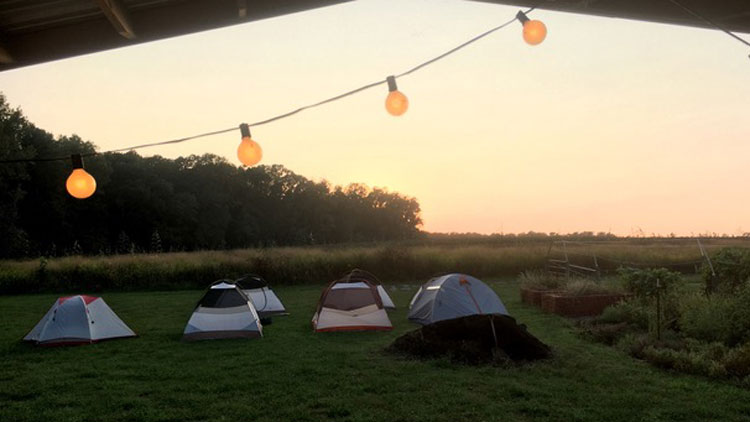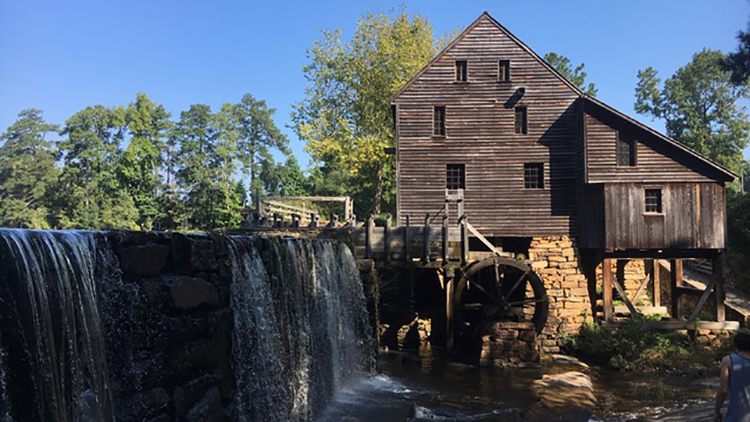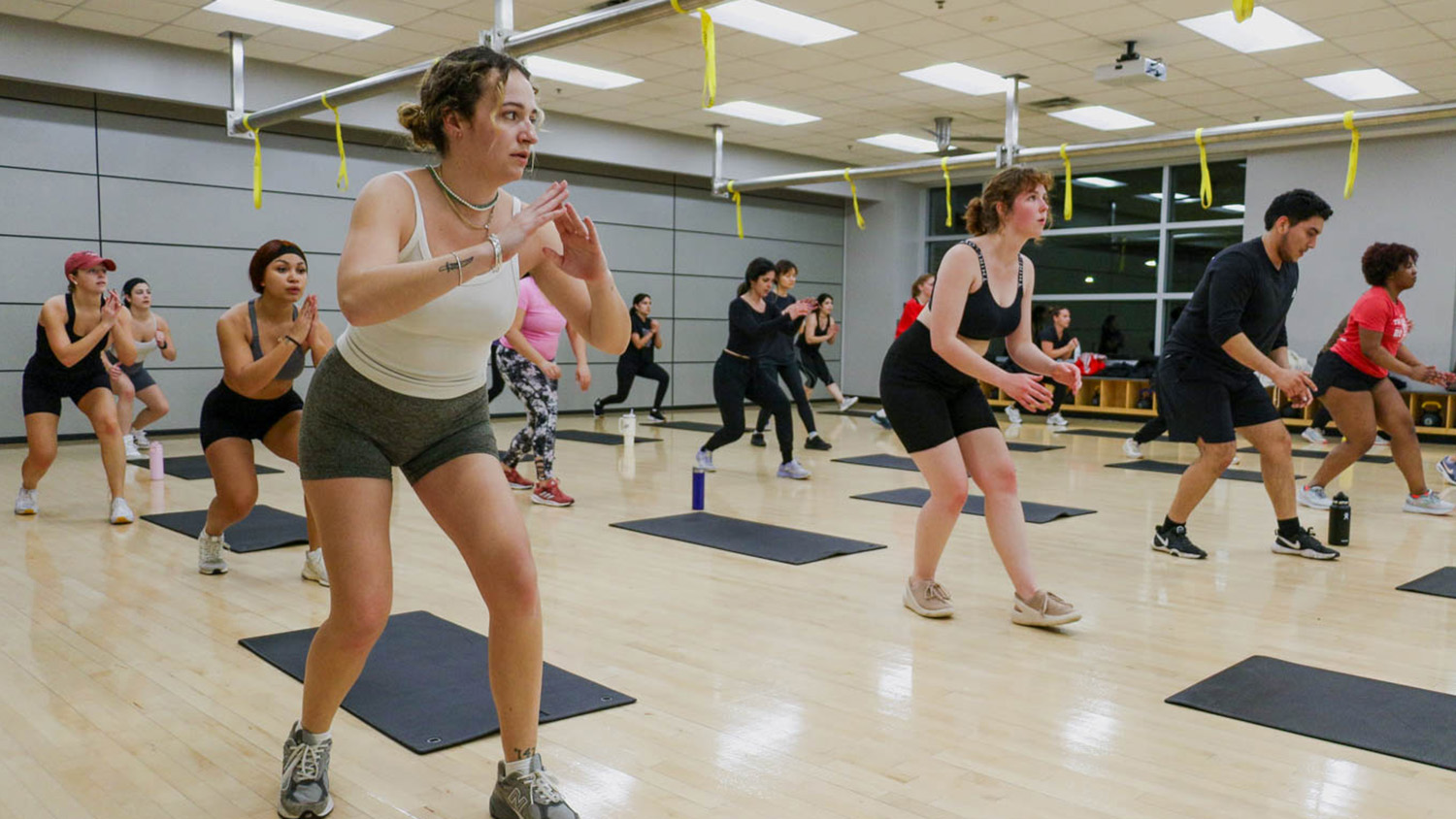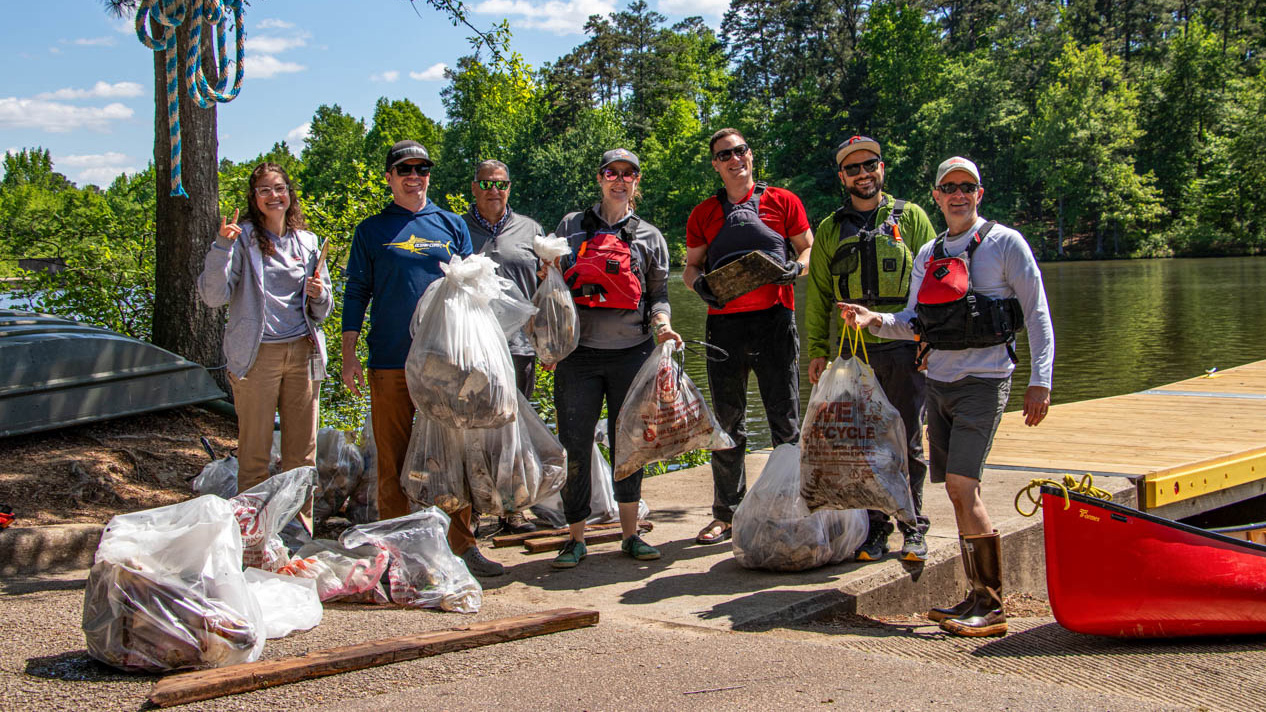Down on the Farm With Outdoor Adventures

By: Latham Childress ‘19 communication
For science, technology and society major Sean Betts ‘19, being outdoors is not just a pastime, it’s a passion. His love for the outdoors inspired him to obtain a position as a trip leader for Wellness and Recreation. Recently, he was able to share his love for the outdoors with other students by leading the Fall Harvest Campout that took place September 21-22.
This trip was the second for agroecology and sustainable food systems major Grace Baucom ‘22. After seeing how the Wolf Camp trip during the summer served as such a great introduction to her time as an NC State student, she decided to register for another.

The campout took place at the NC State Agroecology Education Farm, located in Southwest Raleigh off of Lake Wheeler Road. The trip started with a tour of the site. “During the tour, we learned about the innovative permaculture techniques used on the farm, and saw the hoop house, pollinator garden and beehives,” said Baucom. According to a study by the Horticulture Department of NC State, these techniques reuse waste and conserve resources to make farming more sustainable, which leads to the creation of more products without being detrimental to the environment.
Following the tour, the participants were split into groups for volunteering.
[pullquote cite=”Grace Baucom ‘22,
agroecology and sustainable food systems” color=”wolfpackred” align=”alignleft”]By encouraging students to engage with agriculture and sustainability in a hands-on setting, the trip recognizes the importance of education as a factor in wellness, and helped students appreciate agriculture’s role in a healthy lifestyle.[/pullquote]
“One group helped maneuver some row cover and prepare planting beds, the second group planted flower starts in a bed near the covered shelter and the third group set up camp and helped cook dinner,” said Baucom. “ I worked with the second group — it was fun to plant the little starts and imagine them growing beautiful flowers in the spring.”
A row cover is a plastic screen put over vegetables that provide the same effect as a greenhouse. Thanks to the volunteer efforts of the group, the vegetables on the farm are now protected for the cold winter months.
For dinner, the group ate chili made from ingredients grown on the farm. Baucom described the meal as a “true farm-to-table experience,” meaning that their dinner was made directly from food that they had just harvested. This is beneficial because the vegetables still have their full nutritional value, unlike those that are bought in supermarkets. After dinner, everyone gathered around a campfire to roast marshmallows and play games, which was Baucom’s favorite part of the trip.
“Both of these activities brought our group closer together – regardless of major, age, or background, we could all come together to appreciate a fun campfire game and a sugary treat.”
The following morning, the group concluded the trip by taking a tour of the adjacent Yates Mill County Park,where they were able to see a mill that serves as one of Wake County’s historical landmarks.
The group’s experience on the farm allowed them to learn more about sustainable agriculture and the impact that the farm has on the NC State community. Not only is the farm close to campus, but crops are always being grown throughout the year. A lot of the vegetables grown are used in the dining halls on campus, and the farm itself serves to educate students of all majors about sustainable agriculture.
According to Michigan State University, there are many advantages to eating foods grown locally, and NC State is fortunate enough to have its own farm to grow from. Since the time from harvest to consumption is shorter, this means that the food will have a larger nutritional value, have better fflavorand a lower chance of becoming contaminated. Additionally, locally grown food enhances the economy and limits environmental damage.
Baucom noted how the trip reflects the mission of Wellness and Recreation. “By encouraging students to engage with agriculture and sustainability in a hands-on setting, the trip recognizes the importance of education as a factor in wellness, and helped students appreciate agriculture’s role in a healthy lifestyle,” she said.
Although it may seem awkward to spend the night with strangers in a location that you have never visited, the bonding allows everyone to quickly become friends. Baucom said, “It’s hard to stay uncomfortable with someone when you are chopping peppers, planting flowers and pitching tents alongside them. The collaborative focus of the trip made it easy to feel comfortable with the other participants – by the time we were singing camp songs around the fire, we were all friends.”
If someone is unsure as to whether or not they should register for an Outdoor Adventures trip, Betts let us know that all trips are designed with beginners in mind, which is a great way for someone to step out of their comfort zone and try something new. “There is truly a trip for everyone – from backpacking to kayaking to camping and everything in between, and with plenty of variety and options in trip length and difficulty, everyone can find a trip that fits their interests,” said Baucom.
Betts’ favorite memories from the trips he leads are getting to see new places and meeting new people. “The best part is definitely seeing a group of people go from strangers to making a community, just by being outside and having an unique experience together.”
To learn more about NC State’s agroecology farm and their sustainable practices, view their website or visit the farm in person. The farm can be used as an educational setting for classes or labs, and volunteer days are held twice a month.
More information about registration for upcoming trips can be found on the Wellness and Recreation website.
- Categories:


